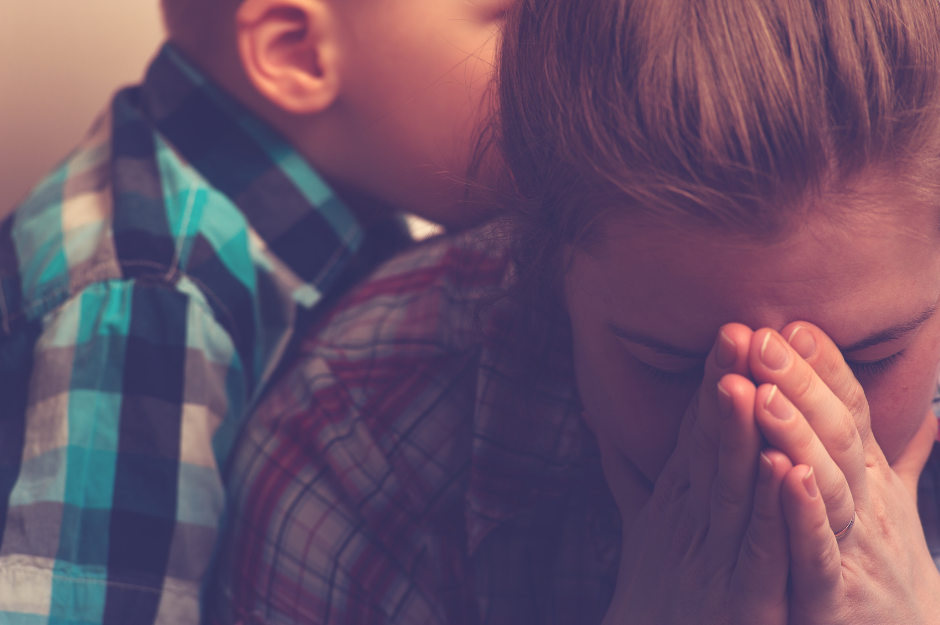Since the start of the coronavirus pandemic, parenting has gotten even tougher for most families. With so many children either doing remote or hybrid learning, there are fewer breaks in the day from childcare and parents are understandably feeling the stress, especially women.
According to a recent study from the University of Southern California’s Center for Economic and Social Research, moms are reporting a huge spike in psychological distress.
“Considering women already shouldered a greater burden for childcare prior to the pandemic, it’s unsurprising the demands are now even greater,” said Gema Zamarro, one of the study’s authors. “While men are more likely to die from infection by COVID-19, overall the pandemic has had a disproportionately detrimental impact on the mental health of women, particularly those with kids.”
The analysis found more women than men took on childcare duties after schools closed in response to the coronavirus: 44 percent of women in early April reported being the only household member providing care, compared to 14 percent of men. Furthermore, 34 percent of the moms surveyed reported being at least mildly distressed by early June (compared to 19 percent of men with and without kids.)
It’s a tough time for parenting. Now, add a challenging child into the mix and even the most devoted parent can experience burnout.
What is the difference between typical parenting stress and burnout?
According to Sheryl Ziegler, a psychologist and author of Mommy Burnout, “burnout is the chronic, physical, and emotional exhaustion resulting from feeling like you can no longer do your job.”
A parent raising a child with attachment issues may also suffer from Secondary Traumatic Stress (STS), a natural consequence of helping a traumatized or suffering person. Parents who have a personal history of maltreatment and compromised attachment will have a good deal of empathy for their children but are also especially susceptible to psychological harm and symptoms of STS.
The helping individual who develops STS, whether or not compounded by their own personal history, runs the risk of no longer being able to parent their child in a healing way. As the saying goes: You can’t pour from an empty cup. Therefore, it is both in your and your family’s interest to take care of yourself in ways that will keep you from burning out.
How to prevent and recover from burnout?
Keep clear of denial – We have the tendency to deny there is a problem until things get out of hand. Admit you are under stress, identify the sources of your stress, and then you can learn better ways to cope.
Avoid isolation – You may not feel like interacting with others when you are stressed. But closeness and communication help alleviate stress.
Reduce the pressure – Recognize areas of your life that produce the most stress and work toward lightening your load. See if you can eliminate some tasks and ask for help when you need it.
Pace yourself — Strive for moderation and balance. Make sure you build relaxing breaks into your daily schedule.
Minimize worrying – Worrying does not solve problems. Instead, it leads to more anxiety and distress. Rather than brooding, write in a journal, talk with someone you trust, or use a constructive problem-solving method to find solutions and then take action.
Take care of yourself – The number one rule of parenting is to take care of yourself. Get plenty of exercise, have a nutritious diet, avoid drugs and alcohol, and get enough sleep.



I’m so grateful for this article and knowing help is out there. My friends are raising their granddaughter who is special needs. I have forward this to her.
Thank you so much to Idaho Fediration of family.
We are pleased that this article was helpful to you! Thank you for taking the time to read it.